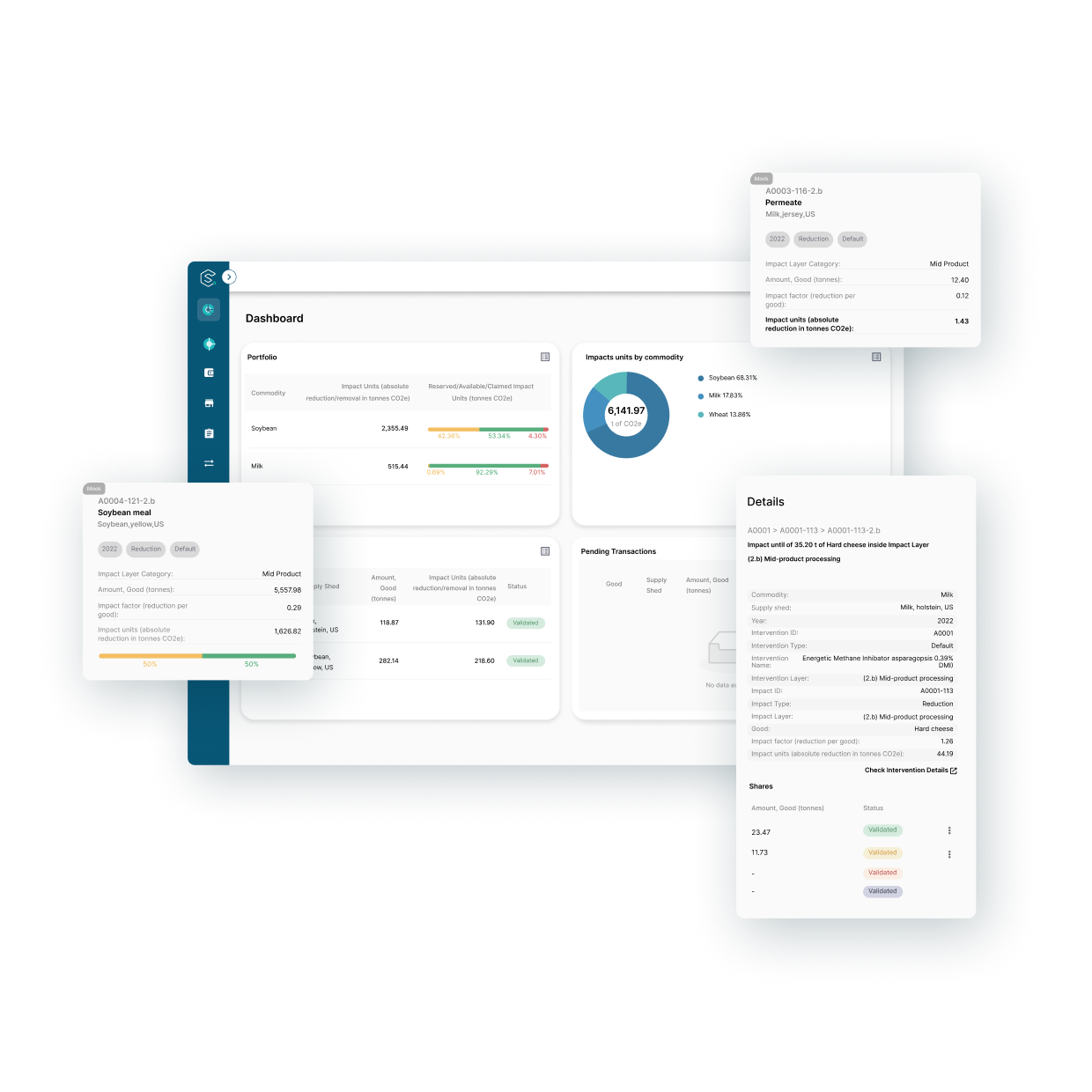
IMPACT MANAGEMENT PLATFORM
The SustainCERT Impact Management Platform provides the digital infrastructure to transform verified emissions reductions and removals into standardized, transferrable outcomes. It helps companies credibly report on Scope 3 progress, collaborate with partners, and scale the impact of their interventions.
Credible reporting
Transform verified mitigation outcomes into Impact Units you can integrate into inventories and sustainability disclosures — aligned with leading standards and trusted by stakeholders.
Co-claim impact
Co-claim verified outcomes with partners across your value chain. Safeguards like Impact Layers and allocation rules ensure fair sharing without double counting.
Lower costs
Mobilize co-investment and allocate results transparently, reducing the cost of interventions while accelerating progress toward climate goals.
Making Scope 3 measurable and manageable
Scope 3 emissions often make up the majority of a company’s footprint. Yet reporting on them is difficult: data is usually based on generic averages, supply chains are complex, and it is unclear how outcomes can be shared fairly among different actors.
The SustainCERT Platform provides a solution. It translates the verified results of value chain interventions into standardized, auditable outcomes — known as Impact Units (IUs) — that can be reported, allocated, and shared across value chains.

What are Impact Units?
Issued on the Platform, each Impact Unit represents one ton of CO₂e reduced or removed, linked to a specific amount of product or raw material.
Impact Units contain two types of verified information:
- Mitigation data – the reductions or removals delivered by an intervention.
- Location- and activity-specific emission factor data – more accurate than generic databases, reflecting actual practices and conditions.
This combination ensures outcomes are traceable, standardized, and directly usable for corporate reporting.

Why Impact Units?
Impact Units are issued only after interventions are verified according to SustainCERT’s Rules and Requirements, which are based on globally recognized best practice.
This provides companies with:
Credibility – verified, science-based data for external reporting.
Flexibility – emission factor data and mitigation outcomes can be used for Scope 3 inventories and sustainability disclosures.
Collaboration – outcomes can be fairly co-claimed with value chain partners, encouraging collective action.

Flexible claiming for value chain partners
Impact Units combine verified mitigation outcomes with location-specific emission factor data. This flexibility allows companies to improve accuracy in reporting, collaborate with partners at different levels of maturity, track progress year over year, and demonstrate progress toward Scope 3 targets.
Traditional Scope 3 inventories rely on generic emission factors, often based on global or national averages. Impact Units replace these with post-intervention, location- and activity-specific data, making inventories more precise. This approach, known as substitution, is aligned with the GHG Protocol and ensures that reported reductions reflect actual outcomes in the value chain.

How it works
Issuance
IUs are issued on the Platform once interventions are validated and verified.
Impact Layers
IUs are allocated across five standardized stages of the value chain, allowing multiple actors to co-claim without double counting.
Tracking & registry
IUs are managed on an independent digital platform, preventing duplication and ensuring transparency through a public registry.
Claiming
Companies submit attestation, stay within allocation boundaries, and co-claim IUs through the platform.
Deliver on your climate goals with confidence
Get in touch to see how the Platform transforms verified reductions and removals into standardized outcomes that support credible Scope 3 reporting, collaboration with partners, and scalable impact.